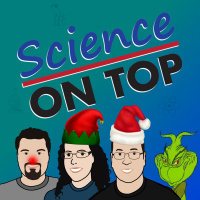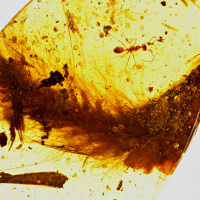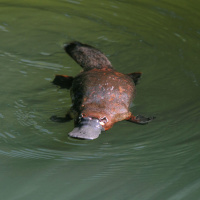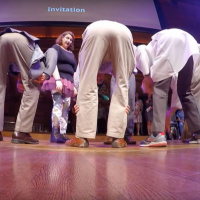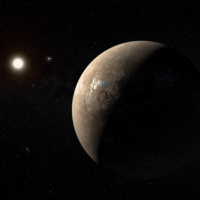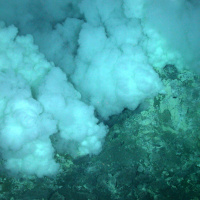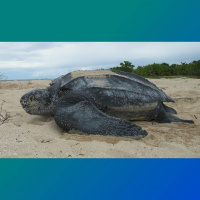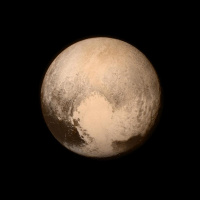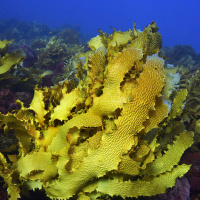Science On Top
- Author: Vários
- Narrator: Vários
- Publisher: Podcast
- Duration: 250:50:17
- More information
Informações:
Synopsis
The Australian podcast about science, health and technology news. Join Ed Brown and his panel of co-hosts each week as we talk about the latest and coolest research and discoveries in the world of science. We're joined by special guests from all over the science field: doctors, professors, nurses, teachers and more.
Episodes
-
SoT 252: Our Favourite Science Stories of 2016
27/12/2016Hosts: Ed Brown, Dr. Shayne Joseph, Lucas Randall, Jo Benhamu 00:02:28 Explainer: gravitational waves and why their discovery is such a big deal 00:07:42 One Year Ago Today, Pluto Became a World. 00:12:19 The Most Mysterious Star in the Galaxy 00:18:01 One drug is 'new hope' for three killer infections 00:21:37 FDA bans antibacterial soaps containing triclosan 00:25:48 Using a Dyson hand dryer is like setting off a viral bomb in a bathroom 00:32:42 A Blood Test To Determine When Antibiotics Are Warranted 00:37:13 Clones no more as a secret population of Tasmanian devils discovered 00:39:58 Tasmanian devils are evolving rapidly to fight their deadly cancer Jo Benhamu is a clinical trials coordinator in radiation oncology.
-
SoT 251: The Stellarator At Wolfenstein
21/12/2016 Duration: 41minHosts: Ed Brown, Dr. Shayne Joseph, Penny Dumsday, Lucas Randall. 00:00:58 By looking at astronomical records from 720 BC to AD 2015, researchers have found a small inaccuracy in modern calculations of the Earth's rotational speed. The Earth's spin is slowing down slightly slower than we thought. 00:11:44 A small section of a dinosaur's tail has been found in a piece of amber for sale in a market in Myanmar. The tail is amazingly well preserved - and feathered! 00:17:31 Nuclear fusion - as opposed to our current nuclear reactors, which use nuclear fission - is the 'holy grail' of physics research. It could provide near limitless energy, without toxic by-products. Now the Wendelstein 7-X project in Germany appears to be making progress, successfully trapping plasma in a magnetic cage. 00:29:39 A small study at Johns Hopkins University could give cancer patients suffering from depression and anxiety some hope. It suggests that just a single dose of magic mushrooms can improve their mental health for months.
-
SoT 250: Pet Platypuses
15/12/2016 Duration: 20minHosts: Ed Brown, Dr. Shayne Joseph, Penny Dumsday 00:00:50 For a long time, vision problems have been a known side-effect of spending a long time in space. We are now a big step closer to understanding why, thanks to some MRI scans done before and after trips to the International Space Station. 00:08:15 The male of the duck-billed platypus has a venomous spurr on its leg. But that venom contains a hormone that could be useful for treating diabetes. 00:13:42 A new study by researchers at Caltech suggests that we could be looking for the cause of Parkinson's Disease in the wrong place. Instead of being a brain issue, it could be related to gut irritation. This episode contains traces of Wil Anderson talking with journalist Mark Colvin.
-
SoT 249: Snail Tinder
11/12/2016 Duration: 25minHosts: Ed Brown, Penny Dumsday, Lucas Randall 00:00:51 Scientists have drilled into the impact site of the meteor that wiped out the dinosaurs. The core samples have revealed the impact caused a temporary mountain range the size of the Himalayas. 00:11:16 At a time when the coconut market is booming, the world's coconut trees could be facing extinction. And saving them presents a number of difficult challenges. 00:14:58 Researchers using NASA's Mars Reconnaissance Orbiter have determined that frozen beneath a particular region of Mars's surface lies about as much water as what's in Lake Superior, largest of the Great Lakes in North America. 00:19:56 Most snail shells coil on the right-hand side of the snail. But Jeremy the Snail is 1 in 100,000 - his shell coils to the left. For snails, it's hard to find love when you're a lefty. This episode contains archive material of astronaut John Glenn's historic first orbit around the Earth.
-
SoT 248: Through The Melon
05/12/2016 Duration: 24minHosts: Ed Brown, Dr. Shayne Joseph, Penny Dumsday, Lucas Randall 00:01:03 Narwhals are whales with two teeth, and on the males one of those teeth is a really long tusk. A new study looks at how they use high-resolution echolocation to navigate under sea ice in the Arctic. 00:05:25 A new paper points out a potential new reservoir for finding antibiotics - the human gut. 00:11:59 Using data from the New Horizons probe, scientists have determined there is likely to be a large ocean deep below the heart shape on Pluto. This episode contains traces of Stephen Hawking cautioning against being sedentary.
-
SoT 247: Yeast-Growing Robots
22/11/2016 Duration: 33minHosts: Ed Brown, Penny Dumsday, Lucas Randall. 00:01:28 An extensive series of experiments over 17 years has led to the development of a new genetic map of yeast. Essentially, it's a reference guide for how to chart genetic interactions within a cell. 00:07:33 A new study of the Hubble Space Telescope observations has increased the estimated number of galaxies in the universe. The new count stands at two trillion - almost ten times the previous estimate of 120 billion! 00:15:02 NASA has announced that the successor to the Hubble, the James Webb Space Telescope, has been built. This marks the beginning of two years of intense stressing and testing, before launch in October 2018. 00:18:32 A new study suggests that Britain's Beagle 2 Mars lander may have landed successfully, but a subsequent failure made it unable to communicate with Earth. 00:19:41 A team at University of California, San Diego say they've discovered a previously unknown way that bacteria causes acne. They have shown that fatty acids produced
-
SoT 246: Nobel Prizes 2016
20/10/2016 Duration: 16minHosts: Ed Brown, Dr. Shayne Joseph and Lucas Randall. 00:01:12 The Nobel Prize in Physiology or Medicine was awarded to Yoshinori Ohsumi "for his discoveries of mechanisms for autophagy". 00:06:43 The Nobel Prize in Physics was divided, one half awarded to David J. Thouless, the other half jointly to F. Duncan M. Haldane and J. Michael Kosterlitz "for theoretical discoveries of topological phase transitions and topological phases of matter". 00:11:06 The Nobel Prize in Chemistry was awarded jointly to Jean-Pierre Sauvage, Sir J. Fraser Stoddart and Bernard L. Feringa "for the design and synthesis of molecular machines". This episode may contain traces of Nobel Committee member Thor Hans Hansson explaining topology with his lunch.
-
SoT 245: The 2016 Ig Nobel Prizes
15/10/2016 Duration: 01h06minHosts: Ed Brown, Dr. Shayne Joseph, Penny Dumsday, and Lucas Randall. The Ig Nobel Prizes honour achievements that first make us laugh, then make us think. We take a look at this year’s winners: from rats in pants to collecting flies! You can watch the award ceremony here. 00:01:28 REPRODUCTION PRIZE was posthumously awarded to Ahmed Shafik, from Egypt, "for studying the effects of wearing polyester, cotton, or wool trousers on the sex life of rats, and for conducting similar tests with human males". 00:10:18 ECONOMICS PRIZE went to two researchers from New Zealand and one from the UK "for assessing the perceived personalities of rocks, from a sales and marketing perspective". 00:19:27 PHYSICS PRIZE was presented to scientists from Hungary, Spain, Sweden, and Switzerland "for discovering why white-haired horses are the most horsefly-proof horses, and for discovering why dragonflies are fatally attracted to black tombstones". 00:28:19 CHEMISTRY PRIZE was given to Volkswagen, "for solving the problem of exces
-
SoT 244: Exit The Area
09/10/2016 Duration: 30minHosts: Ed Brown, Penny Dumsday, Jo Benhamu. 00:01:00 The rattle of the rattlesnake's tail has long been something of a mystery for evolutionary biologists, because there's no 'half-shake'. Well a study by David Pfennig at the University of North Carolina at Chapel Hill may suggest they started off shaking their silent tails, but over time developed a rattle as a signal to predators. 00:06:54 The long awaited results of a 10 year prostate cancer trial were published last week in the New England Journal of Medicine. The study looked at 1,643 men diagnosed with early prostate cancer, and found that those who actively monitored their cancer instead of immediately starting treatment had the same minuscule risk of death as men who had either radiation therapy or surgery straight away. 00:21:05 Shu Lam, a 24 year old PhD student at Melbourne University has developed a star-shaped protein that can rip apart the walls of antibiotic-resistant bacteria – and kill them. Jo Benhamu is a clinical trials coordinator in
-
SoT 243: What's Wrong With You, Humans?
03/10/2016 Duration: 41minHosts: Ed Brown, Dr. Shayne Joseph, Penny Dumsday, Lucas Randall. 00:00:52 A new study has found that as well as affecting the tides, the gravitational pull from the moon and the sun can affect Earthquakes. 00:06:47 A genetic study of giraffes has found that there isn't just one species, as previously thought. In fact there are four distinct species, some as different as polar bears are to brown bears. 00:15:40 A video showing the evolution of bacteria to resist antibiotics has gone viral, because it is such a clear demonstration. It is unlikely to change the minds of evolution deniers, though. 00:20:54 The Gaia space telescope has released the first catalogue of more than a billion stars. This is the largest all-sky survey of celestial objects to date. 00:33:34 Long-term studies of Ebola survivors have revealed that the virus lasts a lot longer in victims' bodies than previously suspected. And in some people, it can last for up to 18 months after all symptoms have cleared. This episode may contain traces
-
SoT 242: Making of a Murdered Fossil
22/09/2016 Duration: 38minHosts: Ed Brown, Penny Dumsday, Lucas Randall. 00:00:37 The FDA has decreed that triclosan and triclocarban must be removed from all antibacterial soap products by late 2017. This is not because they're dangerous, but because they're ineffective. 00:07:38 The OSIRIS-REx spacecraft has launched "perfectly". If successful, this ambitious mission will be the first time NASA has retrieved samples of an asteroid. 00:23:37 A new study of Lucy - the bones of a human ancestor from 3.2 million years ago - suggests she may have died from falling from a tree. 00:30:22 The Juno probe in orbit around Jupiter has taken some extraordinary photographs - the first ever photos of Jupiter's polar regions. This episode may contain traces of astrophysicist Neil deGrasse Tyson describing a Tim Tam Slam.
-
SoT 241: OMG They've Got Radio!
15/09/2016 Duration: 41minHosts: Ed Brown, Dr. Shayne Joseph, Penny Dumsday, Lucas Randall. 00:00:51 A genetic analysis of the leather coat and fur hat worn by Otzi the iceman has not only revealed what animals he was wearing, but also why. 00:07:07 Zebra finch mothers sing weather reports to their eggs, and the embryos alter the speed of their development accordingly. 00:12:16 Tasmanian devils, nearly wiped out by a devastating facial tumour disease, may be showing signs of resistance to the cancer. This could have a dramatic impact on conservation efforts. 00:20:07 Traces of supernova ash has been discovered in fossils created by bacteria on Earth, which could explain an extinction event 2 million years ago. 00:23:04 Russian scientists have detected an unusually strong spike in radio signals from the vicinity of a nearby star. The internet says it's aliens. Actual scientists say it probably isn't. 00:30:46 The "EM Drive" - a space drive that appears to break the laws of physics - has "passed peer review". But what does that ac
-
SoT 240: Fat Kids On A Seesaw
07/09/2016 Duration: 56min00:00:38 A planet-that-in-some-respects-probably-resembles-Earth-a-little-bit has been found orbiting the closest star outside our solar system, Proxima Centauri. Astronomer and astrobiologist Dr. Jonti Horner gives us the details about our nearest distant neighbour, Proxima Centauri b. 00:45:33 Thanks to continental drift, Australia's moving Northward by 7cm every year. As a result, it's now more than a meter from where the maps say it is. And when your self-driving car relies on GPS, that could be a big problem. Dr. Jonti Horner is an astronomer and astrobiologist based at the University of Southern Queensland. On Saturday, 24 September 2016 he will be giving a talk, "Exoplanets & Life Elsewhere", at the Melbourne Planetarium. This episode may contain traces of Shepard Smith announcing the discovery of Proxima Centauri b.
-
SoT 239: The Supervolcano Hissy Fit
28/08/2016 Duration: 29min00:00:42 106 Million years ago, supervolcanoes in Australia hurled rocks more than 2,250km away. Such eruptions would have been among the biggest ever on Earth. 00:03:47 These volcanoes are part of a previously unknown trail created by a hotspot underneath Australia, which formed new volcanoes as the continent moved over it. 00:10:49 The long-standing view that life first began in "primordial soup" that was struck by lightening may be about to be overturned. The theory that the first living cells were born deep in the ocean in warm, hydrothermal vents is now gaining traction. 00:18:17 The Europa Clipper is NASA's ambitious mission to send a probe to Jupiter's sixth-closest moon, Europa. Europa is one of the best candidates for life in the solar system, but the mission is now facing serious possible budget cuts. This episode may contain traces of veteran newsreader Lee Lin Chin opining on the lack of Facebook love for Australia's premier scientific organisation, the CSIRO.
-
SoT 238: It Certainly Does Suck
22/08/2016 Duration: 24min00:00:50 Olympic athletes are using suction cups to suck their skin up into a cup. But is there any science to cupping? (Spoiler: not much, but some. Well, sort of.) 00:10:30 Promising animal trials suggest Chagas disease, leishmaniasis and sleeping sickness could all be treated and possibly even cured, with one relatively safe drug. 00:13:53 An international team of scientists have discovered that the liquid found in the brood sacks of a particular type of cockroach is a highly nutritious source of protein. One day we might be feeding our babies cockroach milk! 00:18:26 Headlice are becoming resistant to the common insecticides we usually use. But a simple, 3,000 year old treatment could be the solution. This episode may contain traces of Peter Alexander talking about cupping on NBC News.
-
SoT 237: Texas Echelon Cross Echelle Spectrograph
13/08/2016 Duration: 19min00:00:53 Jupiter's moon Io, the fourth largest moon in the solar system, has a volcanic atmosphere that collapses every day. 00:09:07 A survey of fifty houses in North Carolina as found a correlation between household income and biodiversity. The wealthier the household, the greater the variety of insects found inside. 00:13:46 Data from the Dawn spacecraft reveals that Ceres, the largest asteroid in the main asteroid belt, is not the dead lump of rock we thought it would be. In fact, it may have a still warm radioactive interior. This episode may contain traces of newly elected Australian Senator Malcolm Roberts and his thoughts on carbon dioxide.
-
SoT 236: Set Phasers To Stun
09/08/2016 Duration: 24min00:00:49 One of the bigger mysteries about the surface of Mars concerns the formation of some of the gullies. They look very similar to gullies created by flowing water on Earth, only they don't seem to be caused by water at all. 00:10:48 Modern chemotherapy drugs are improving all the time, but they still have really nasty side-effects. But a study published this week shows some promise of being able to deliver the drugs directly into a tumour, thanks to some genetically modified salmonella bacteria. 00:17:01 At first glance, it seems obvious that turtles have evolved their shells as a form of protection. But a new paper published in Current Biology suggests it initially evolved to help turtle ancestors burrow. This episode may contain traces of Professor Brian Cox.
-
SoT 235: It's Not Nibiru!
02/08/2016 Duration: 36min00:02:35 It's been a year since New Horizons flew past Pluto, and now all the data is in. We take a look at some of the big things we've leared about Pluto and its moons. 00:19:57 The Centers for Disease Control and Prevention announced last week that the bacteria that causes gonorrhea may be developing resistance to the only two antibiotics left that can cure it. 00:25:12 While all the major planets in the solar system orbit the sun in a fairly tight plane, that orbital plane isn't aligned with the Sun's equator. Which means either the sun has been tilted, or something has influenced the orbits of all the planets. Two independent scientific papers published last week point to the second option - and Planet Nine could be the culprit. This episode contains traces of Donald Trump and Hillary Clinton discussing climate change.
-
SoT 234: Rock Lobster
27/07/2016 Duration: 41min00:00:39 A decade ago, the Great Southern Reef stretched for 8,000km off the coast of Western Australia. Now, a long-term study shows how decades of ocean warming combined with a marine heatwave has devastated the kelp forest. We caught up with Dr Scott Bennett from the Spanish National Research Council, one of the primary investigators on the study. 00:20:04 A new study has found that capuchin monkeys in Brazil have been using stones as tools to prepare their cashew feasts for more than 700 years. 00:24:49 Researchers at the Stanford University School of Medicine have made a major discovery that could determine whether a patient has a bacterial infection or a viral infection by through a simple blood test. 00:31:26 The European Space Agency has announced an ambitious plan to catch a derelict satellite in a net, and burn it up in Earth's atmosphere. Dr. Scott Bennett is a Marie Curie Fellow at the Spanish National Research Council (CSIC), and Research Associate in Marine Ecology at Curtin University. This
-
SoT 233: Growth Mindset
14/07/2016 Duration: 25min00:01:29 713 Trillion gallons of water found deep underneath California. But we can't touch it... yet. 00:09:48 A pair of wings found encased in 99 million year old amber suggest that the plumage of modern birds has remained almost unchanged from some of their dinosaur-era ancestors. 00:13:58 Thirty eight rare hazel dormice have been released into the Yorkshire Dales National Park in England in a conservation effort. But the declining dormouse population raises other issues about how changing land use is affecting the wildlife. 00:18:45 A three-year study of a reef in the Florida Keys has shed light on how microbes are crucial to keeping coral reefs healthy Overfishing, pollution and climate change can destabilise the coral's natural defence and disrupt ecological communities. This episode may contain traces of Rick Nybakken, Project Manager for the Juno mission at NASA’s Jet Propulsion Laboratory.

